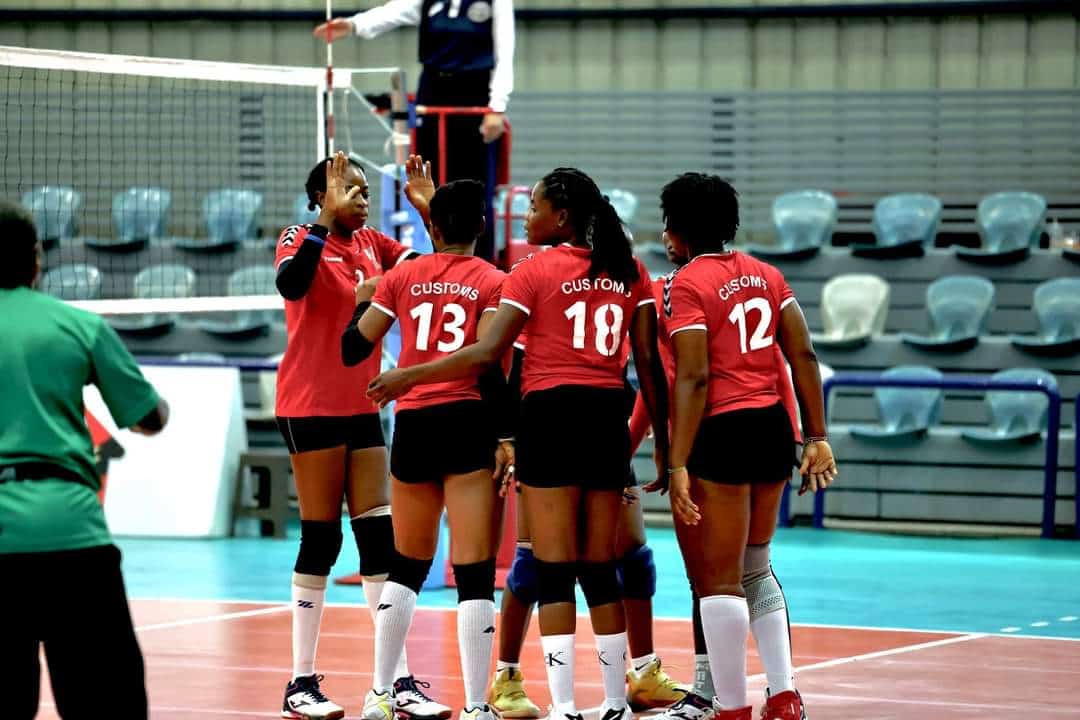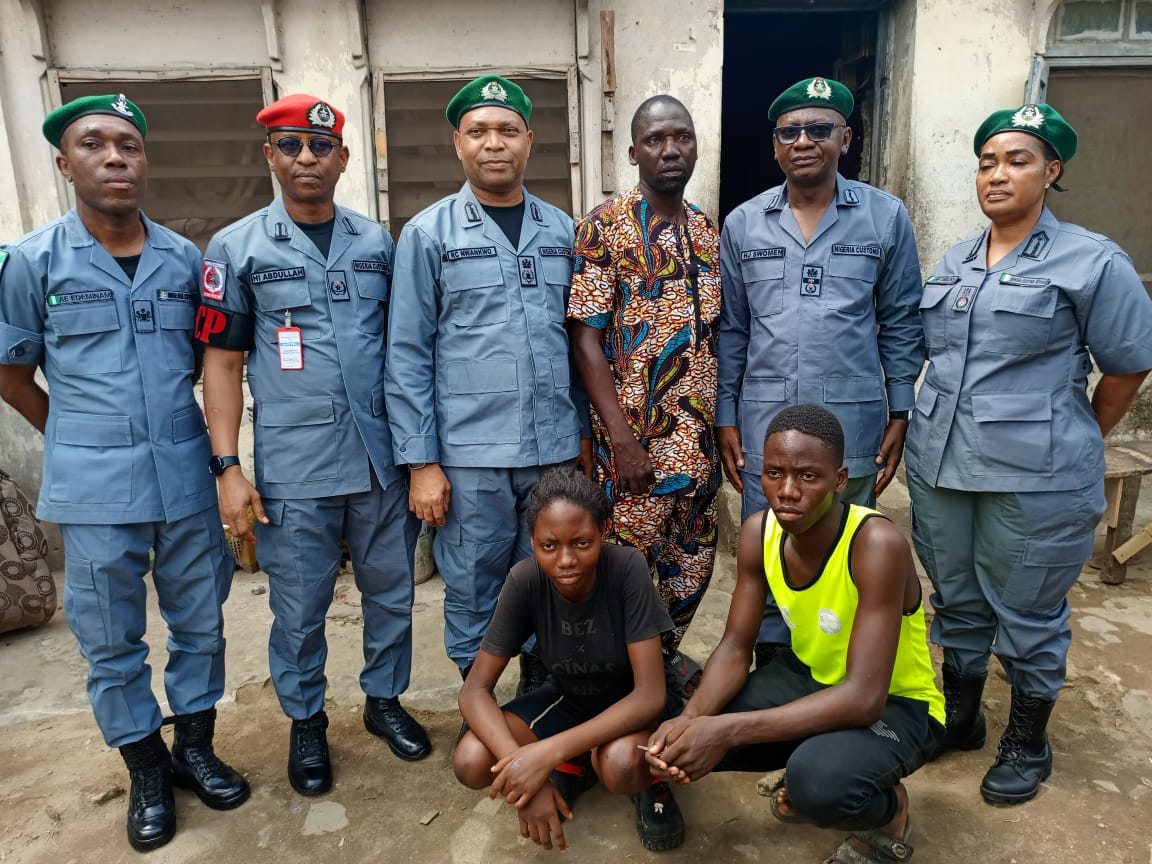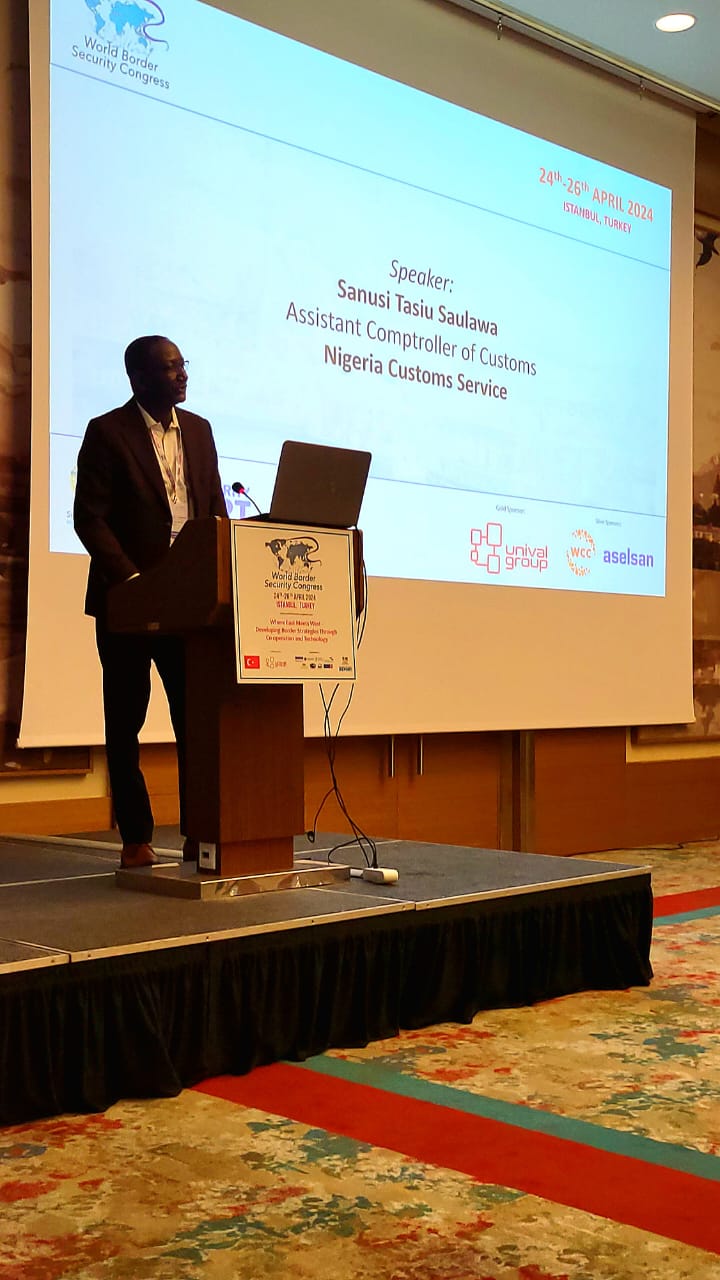Customs Corner
Nigeria Customs Service; A Perspective on Import Valuation

International trade is often conducted under globally accepted processes and procedures. These processes are hinged on protocols adopted via conventions and treaties. The World Customs Organisation, being the international body for the regulation of local Customs authorities worldwide has come up with guidelines for the application of rules adopted by its members and other international organisations.
Another organisation saddled with the responsibility of regulating international trade is the World Trade Organisation WTO. In Its guideline for assessing the proper value for goods outlined in its Agreement on implementation of Article VII of General Agreement on Trade and Tariffs, 1994, it provides a Customs Valuation method which primarily bases the Customs value on the transaction value of the imported goods, also known as either the price actually paid or payable for the goods when sold for export to the country of importation.
In addition to the transaction value, WTO prescribes 5 other methods that can be applied successively. So the transaction value is followed by;
* The transaction value of identical goods
* The transaction value of similar goods
* The deductive value method
* The computed value method
* The fall-back method.
All of which are applied in hierarchical order.
The intention of the above-referenced Agreement is to provide a system that is uniform, fair, and neutral for the valuation of imported goods for Customs purposes.
The Nigeria Customs Service being a member of WCO has domiciled this agreement in its modus operandi. The Customs Valuation Unit under the Tariff & Trade Department has recently come under fire for lending itself to the consistent and correct interpretation and application of this agreement.
Some unpatriotic individuals, engaged in the importation and clearing of goods who, being poorly informed about the application of these valuation methods have attempted to portray the Customs in a bad light, by claiming that the Valuation unit adopts non-methodical and arbitrary means to arrive at values for Customs purposes. Nothing could be further from the truth.
This assertion is bogus and untenable when examined through the prism of current global realities. When we look at data from the past 3 years and focus particularly on the last 2, we are confronted with massive schisms in the global supply chain occasioned by the Covid19 pandemic. Manufacturers in developed countries have had to cut down on production because of the difficulties experienced in moving parts and components across international borders. Except for medical equipment and supplies, most other goods have witnessed a decline in production. This situation has created a scarcity of basic goods and services in most countries, thereby creating upward price swings. A classic example is the US auto industry that has seen steady increases in the prices of new and used vehicles as a result of interruptions in the global supply chain.
In spite of these obvious trends, the Nigeria Customs Service Valuation unit has in recent times been inundated with questionable requests for the acceptance of fictitious transaction values which bear no resemblances to global realities. Some unscrupulous importers and their agents have resorted to concocting values suitable only for their selfish ends, and solely for the purpose of evading the payment of appropriate Customs duty.
To be sure the value for Customs duty is based on three components. One is the transaction value of the goods in question, also known as the Cost, second is the value or cost of freight, and thirdly the value of insurance for the goods in transit. All three are captured as the CIF value and forms the tax base for assessing duty.
Whenever anyone or all three of these components goes up, it automatically creates a domino effect seen in increased assessed values and duties across the board.
Since value assessments are based on the currencies of exchange when calculating duty payable on imports, we are compelled to also factor in the exchange rate. Even when the cost, insurance and freight values remain unchanged over time, the fact that the exchange rate varies, implies that there must be a commensurate increase in assessments and duty payable.
The Nigeria Customs has in its database a comprehensive list of import transactions that have taken place over the years. The historical data of all importers and imports in our possession lend themselves to critical analysis for Customs valuation and other purposes. Using recent aggregates of this data, we have been able to identify inconsistencies in values for the same, identical or similar goods imported by the same importers from the same countries of origin. We are aware that certain individuals and organisations deliberately make false attestations on their invoices and other final documents with the aim of evading the payment of duty and then turn around to blackmail the Service for querying their declarations. Like other attempts before it, this also will fail. The Nigeria Customs Service is bent on checkmating all attempts at duty evasion, and it is resolved in doing this in line with the principles outlined in international treaties and agreements.
Since we all are in agreement as to the negative effect of the pandemic on the global supply chain, and its effect on cost, insurance and freight, we should then not be surprised by adjustments made by Customs Valuation officers reflecting our current global realities. Therefore, anyone inputting ulterior motives to the actions of Valuation officers, should themselves be viewed with suspicion.
At a time like this when every kobo counts in helping the government actualize its development objectives, no one should feel justified to, under the guise of industry watchdogs, monitoring or consumer protection deprive the federal government of its dues in terms of payment of correct Customs duty.
Incase You Missed:
Customs Seize Contrabands Worth Over N100 Million in Katsina
3,000 Women and Youths Benefit from Sanwo-Olu’s Agric Investment to Boost Food Security
NCS Seme records Grand Seizure, hands over illicit drugs to NDLEA.
NAFDAC Sensitises MSMEs on Product Registration, Value Addition
FG Inaugurates Transition Management Team to Oversee the Handing Over of ICT Services to NCS
ADVERTISEMENT

ADVERTISEMENT
Customs Corner
Volleyball: Customs Strikes Again, Defeats Saint Denis Olympique at 37th Club Championship in Egypt

Author: Cynthia Idowu.
The Nigeria Customs Service is not only known for its doggedness in fighting smuggling and generating revenue for the federal government, the service has demonstrated a high level of professionalism in sport at the ongoing 37th Women’s African Volleyball Club in Cairo, Egypt.
The Customs Volleyball Women’s Team defeated its opponent, Saint Denis Olympique, by 3 – 0 to imprint its first win at the ongoing championship on Saturday, 27th of April, 2024.

The team who came out strong displayed the anti-smuggling doggedness with a lead in the first set of the game with a 25 – 21 score, sending shivers down the opponent’s spine.
Coach Pricillia Agera led the team, who displayed good skill and dominance with a nail-biting scoreline of 29-27 to clinge victory and secure a place in the annals of volleyball history.
Coach Priscilla Agera hailed the players for their unwavering commitment and tenacity, recognising the challenges they had overcome to achieve victory on the court.
In her words, “Despite the obstacles we’ve faced, you’ve shown the world what it truly means to be a team. Your resilience, your determination, it’s what sets you apart.”
Agera also commended the unwavering support of the Comptroller General of Customs, Bashir Adeniyi, for his steadfast commitment to ensuring the team’s participation in the championship and his instrumentality to their success, providing them with the resources and support they needed to compete at the highest level.
She said, “I appreciate CGC for taking a bold step to allow the team to fly the flag of the nation in this championship.
“I also want to give kudos to the President of Nigeria Volleyball Federation, Engineer Musa Nimrod, for his approval in ensuring the team returns, not forgetting the President of Nigeria Olympic Committee, Engineer Habu Gumel, for his relentless support for volleyball”.
Nigeria Customs Service will face Mayo Kane Evolution on Sunday in their third match after losing to Kenya Pipeline in their first game on Friday.
Recall that the basketball team of the Nigeria Customs Service (NCS) secured a spot among the top three teams at the recently concluded tournament held at the Indoor Hall of the MKO Abiola International Stadium, Abuja.
Customs Corner
Customs Visits Family of Rice Sale Stampede Victims, Rollout Support Strategies

By Lucy Nyambi
In a heartwarming gesture, the Nigeria Customs Service (NCS) has reached out to the family of Susan Odulaja, one of the victims of the tragic stampede that occurred during the sale of 25kg bags of rice in Lagos on February 23, 2024.
The Comptroller-General of Customs (CGC), Bashir Adeniyi, sent a delegation led by the Assistant Comptroller-General of Customs/Zonal Coordinator Zone “A,” Hammi Swomen, to visit the family in Jibowu, Lagos State, on Friday, April 26, 2024.
During the visit, the Zonal Coordinator expressed the NCS’s deepest condolences to the family, stating, “We remember the unfortunate incident that led to the loss of four precious lives during the disposal of 25kg bags of rice at a reduced price of N10,000. We are here to support this family and demonstrate our commitment to their well-being.”
This visit marks the second time the NCS has reached out to the family, demonstrating the service’s commitment to showing compassion and empathy to those affected by the tragedy.
“We are here on behalf of the Comptroller-General of Customs to support this family. This is our second visit, but it is to demonstrate our continued support to the family.” He explained.
Commiserating with the widower, Michael Odulaja, ACG Swomen, pledged the NCS’ commitment to work with the family and support them continuously.”The service is mindful of the effects of this loss, and we have pledged to work with this family and support them continuously. “When you are grieving and have people around you, it reduces the trauma. Right now, we are going to report to the CGC, and the service is considering, in concrete terms, what to do going forward,” he stated.
In response, Odulaja appreciated the service representatives for their visit and support. He said, “I thank God and the Nigeria Customs Service for their support. Any support that they give us, I will ensure that I use it wisely and invest it in the children.”
It will be recalled that the Service issued a press statement after the unfortunate incident on the 26 of February 2024, promising to follow up with the families of the stampede victims.
According to the statement, “Our thoughts and prayers are with the affected families during this challenging time, and we assure them of our unwavering support. We are working with the hospital officials to establish contact and engage directly with the victims’ families on the next step.”
Customs Corner
Nigeria Customs Unveils Innovative Strategies at World Border Security Congress

Gift Wada
Assistant Comptroller of Customs Sanusi Saulawa has showcased Nigeria’s groundbreaking approaches to trade facilitation at the 2024 World Border Security Congress (WBSC) in Istanbul, Turkey.
Saulawa’s paper, “Enabling Trade Facilitation Under Fragile Borders: Nigeria’s Experience,” emphasised the challenges and opportunities faced by African borders, with Nigeria as a focal point.
The annual WBSC gathers law enforcement agents, industry experts, security analysts, IT vendors, scholars, and representatives from international organisations such as Interpol, WCO, AU, USCBP, UNODC, and OSCE.
The forum serves as a platform for brainstorming and exchanging ideas to address the complex issues surrounding global frontiers.
Saulawa’s presentation highlighted Nigeria Customs’ efforts in trade facilitation, including initiatives like the Authorized Economic Operator (AEO) program and Advance Ruling. These strategies aim to streamline border procedures, enhance security, and promote efficient trade flow.
By sharing Nigeria’s experience, Saulawa contributed to the collective effort to find practical solutions to the challenges posed by vast and often fragile borders. His paper underscored the importance of collaboration and innovation in addressing border security issues on a global scale.
The presentation solidifies Nigeria’s position as a leader in border management and trade facilitation efforts.
-

 Revenue Streams2 years ago
Revenue Streams2 years agoCommunication Ministry Gives Zero Allocation to Nipost Out of N137.2billion Capital Votes
-

 Customs Corner2 years ago
Customs Corner2 years agoCustoms Emerges Champions of 2022, Male, Female National Volleyball Super Cup
-

 Newsroom4 years ago
Newsroom4 years agoNNPC Blames #EndSARS Protests, As Fuel Queues Return
-

 ICT5 years ago
ICT5 years agoFinally! Huawei Launched Harmony OS | Let the Rivalry Begins with AndrodOS
-

 Naija News6 years ago
Naija News6 years agoINEC registers 23 new political parties. YES, RAP, UP, 20 other parties
-

 COVID-194 years ago
COVID-194 years agoVaccine Trials Starts Round The World: All You Need to Know
-

 Customs Corner3 years ago
Customs Corner3 years agoArea Controller, Murtala Muhammed International Airport Command Passes On
-

 Foreign2 years ago
Foreign2 years agoPhilippines’ Duterte Blocks Bill to Register Social Media Users






